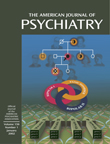Abstract
OBJECTIVE: Clozapine produces EEG abnormalities and dose-dependent risk of epileptic seizures. Much less is known about EEG effects of newer antipsychotics. The present study therefore examined the risk of EEG abnormalities associated with various antipsychotic drugs. METHOD: EEG recordings from 323 hospitalized psychiatric patients (293 treated with antipsychotics, 30 who did not receive any antipsychotic treatment) were graded blind to diagnosis and treatment for type and severity of EEG abnormalities. Drug type, dose, and clinical factors were evaluated for association with EEG abnormalities by multivariate logistic regression. RESULTS: EEG abnormalities occurred in 56 subjects (19.1%) treated and four (13.3%) not treated with antipsychotics. EEG abnormality risk among antipsychotic agents varied greatly (clozapine=47.1%, olanzapine=38.5%, risperidone=28.0%, typical neuroleptics=14.5%, quetiapine=0.0%). Significant risk factors in order of influence were hypertension, use of an atypical antipsychotic, bipolar diagnosis, and older age; benzodiazepine cotreatment lowered risk. Unassociated with risk were sex, treatment response, length of hospital stay, drug potency, daily dose (in mg or mg/kg), drug exposure time, or cotreatments. CONCLUSIONS: EEG abnormality risk varied widely among specific antipsychotics. Risk was particularly high with clozapine and olanzapine, moderate with risperidone and typical neuroleptics, and low with quetiapine. Comorbid hypertension, bipolarity, and older age—but not dose or clinical response—were associated with risk.



